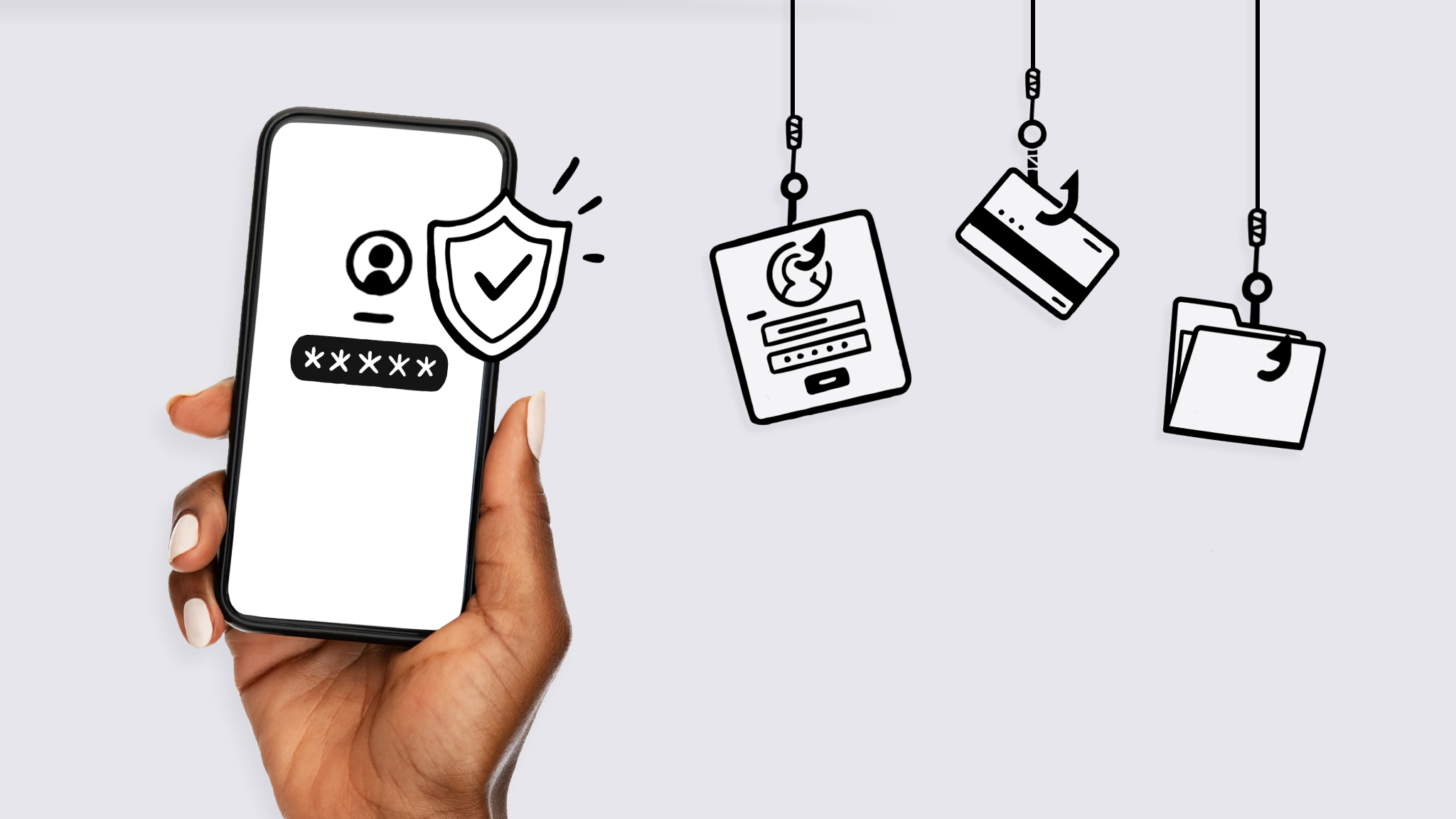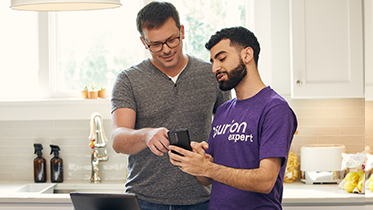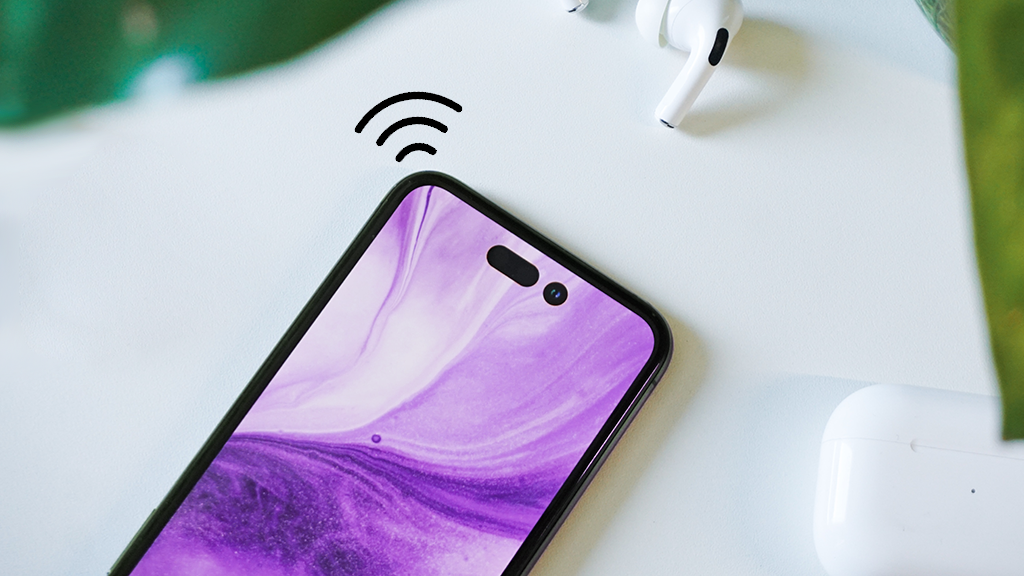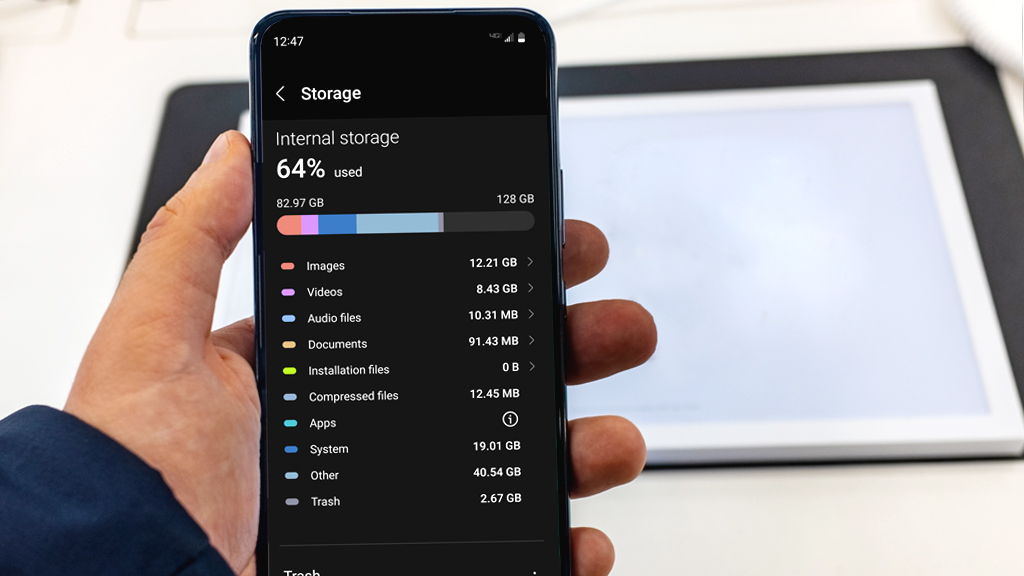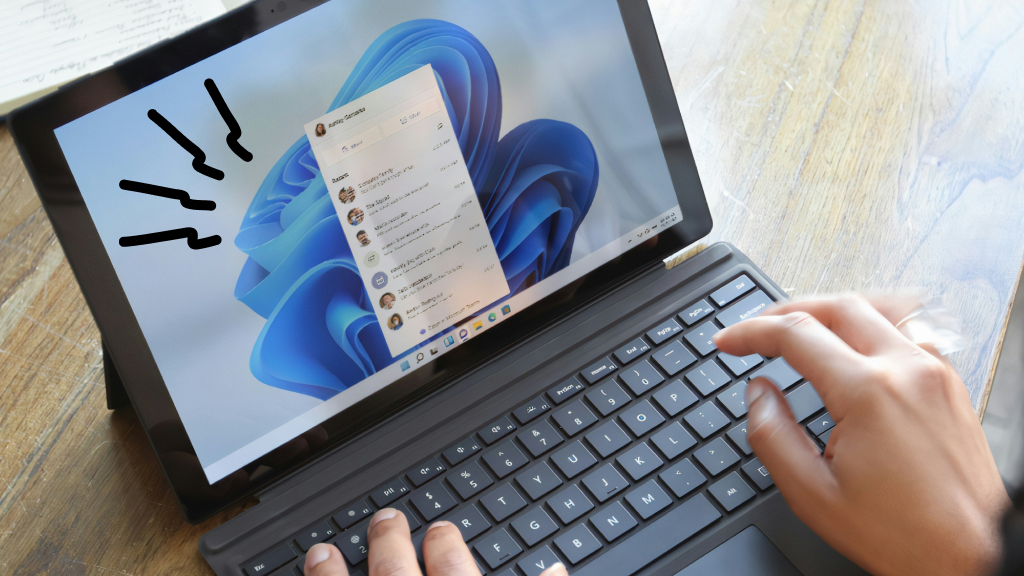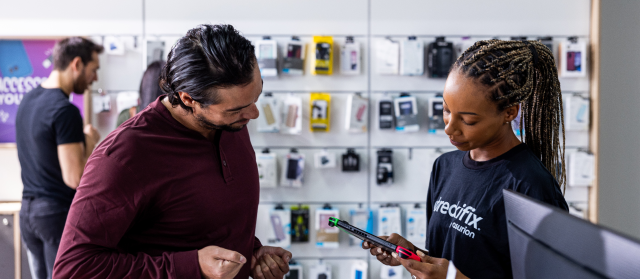Our phones are remarkably secure, but a determined hacker can often find a way in—whether it's through an app we install, a smart device we connect to, or simple human error.
Many of us, for instance, skip basic security measures, like using a lock screen or updating our devices. How safe, then, is your phone from hacking? For the most part, that comes down to what you do.
At Asurion, our experts help millions get the most out of their tech, from fixing an iPad® that's infected with malware to protecting your credit card information online. Here's our guide to securing your phone from hackers and protecting your personal data.
Set a screen lock
Every smartphone lets you lock it with your face, a fingerprint, pattern, or a personal identification number (PIN). Use it. If you lose your phone or someone steals it, no one will be able to get into your device.
Want to know more? Here's how to set up, change, and remove a lock screen on Android™ and how to set up Face ID® on an iPhone®.
Use strong passwords
Secure the accounts on your phone by creating unique, strong passwords. Worried about forgetting it? Try a password manager.
For an extra line of defense, use two-factor authentication on the apps that offer it. This security feature asks you to confirm your identity—usually by entering a code sent via text or email—when you sign in to social media, email, or other password-protected accounts.

Keep your phone working the way it should
Our trusted experts can fix your phone as soon as the same day. Schedule a repair or visit your nearest store today.
Use secure Wi-Fi networks and a VPN
It's always best to use a trusted, secure Wi-Fi network, but if you're on public Wi-Fi—like in an airport or hotel—avoid doing anything online involving your credit card, bank account, or personal information.
To add an extra layer of protection to your Wi-Fi, use a virtual private network (VPN). It creates a secure, encrypted connection between your device and a remote server, protecting your browsing history, location, and identity from hackers. Learn more in our VPN guide.
Use encryption
Encryption uses a code to make any personal information stored on your device useless, even if a hacker somehow bypasses your lock screen. Using a PIN on an iPhone®, for instance, controls access to encrypted information, just like a literal key would to a home. If an Android™ device isn't automatically encrypted, turn on Encryption or Secure startup in your Security settings.
Install software updates ASAP
Hackers are always looking for new ways to break into your device. That's why software makers ask you to download updates when they discover a weakness in their product. As soon as you see a new operating system is available, download it. Better yet, turn on automatic updates. For more information, read our guides to updating your iPhone and Android phone.
Delete old apps
If you don't use an app anymore, delete it, along with its data. Doing so can make your phone more secure, plus free up storage space. If you once created an account with one of these apps, take a moment to sign in and delete your account so that any associated data gets erased too.
Find—and erase—a lost phone
If your phone gets lost or stolen, don't panic. Instead, track it, then lock or wipe it entirely. You'll be able to do this if you've turned on Google® Find My Device (for Android) or the Find My™ feature (for iPhone). Click those links for setup instructions. And if the idea of erasing all your data terrifies you, don't worry: If you regularly back up your phone, you'll be able to access all your data on a new device.

Don’t waste time scrolling
Life is short. Ask our experts and get answers now.
Beware of phishing
In emails, text messages, or advertisements, hackers try to steal your financial and personal information by pretending to be someone you know or trust. Don't click on any suspicious links or download information from sketchy sources. And remember, the scams often appear as if they're coming from someone or somewhere legitimate.
To learn more, read our guide to phishing and our guide to spam text messages.
Be careful what you install
Only download apps found in the Google Play™ store or Apple® App Store®. Because of security measures both companies put in place, only a tiny fraction of approved apps cause safety problems for people.
Unfortunately, the same can't be said for what you download outside these stores. Suspicious apps, documents, or other attachments can come with malicious software that grants unauthorized access to your device, steals your personal data, or changes how it runs.
